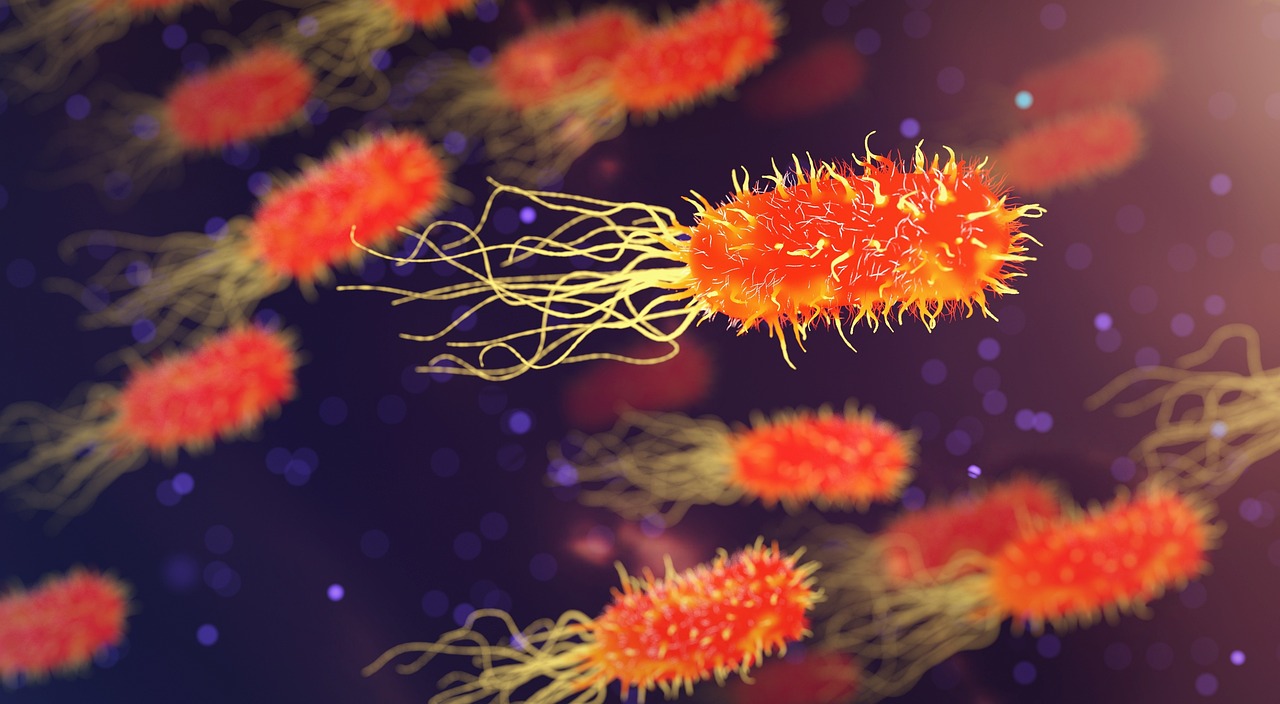The problem of gut microorganisms is difficult. On the one hand, we rely on bacteria since they digest the food in our intestine. On the other hand, various diseases are found among the bacteria. Some of these infections can induce diarrhoea, while others rely on the circumstances: they can survive undetected in the intestine for a long time, but they become hazardous if the immune system is weakened, the intestinal wall is injured, or they reach the bloodstream through wounds. This can result in blood poisoning or potentially fatal organ inflammation.
For a long time, scientists have been looking into vaccines against pathogenic bacteria in the bowel, particularly those that drugs have proved ineffective against due to resistance. This is no easy feat, however, because the immune system of the gut differs from that of the rest of the body, and research has yet to understand the intestinal immune system fully.
Emma Slack, a professor at ETH Zurich and the University of Oxford’s Sir William Dunn School of Pathology, is conducting research in this field. She has now demonstrated, in collaboration with Médéric Diard, a professor at the University of Basel’s Biozentrum, and an international team of researchers, how highly effective oral vaccinations against intestinal pathogens can be formulated: by not only administering the vaccine but also combining it with harmless bacteria that compete with the pathogenic microbes for food and thus starve them. The researchers demonstrated this in a study on mice published in the journal Science.
With their combined method, the researchers were able to not only avoid salmonella colonization in mice, but also efficiently combat previously existing E. coli bacteria. In both situations, immunization or the innocuous bacteria alone had a far lower effect.
To successfully compete with pathogenic microorganisms, rival strains must develop in settings as similar as feasible, which means they must dwell in the same area of the intestine, be able to cope with the same acidity and oxygen levels, and consume the same nutrients.
The researchers chose or created appropriate competitor strains accordingly. Within the study’s framework, they demonstrated in the laboratory that it is possible to create a very successful salmonella-competitor strain using genetic engineering. However, this can be accomplished without the use of genetic engineering if already available strains are carefully selected and merged, as proven by the researchers with a combination of three naturally occurring E. coli strains.
Although we can decimate pathogenic bacteria with a vaccine, we need harmless microorganisms to fill the resulting niche in the intestinal ecosystem in order to achieve long-term success.
It’s like gardening. If you want to avoid weeds in an area of the garden, you have to plant other plants there after weeding. If you leave the soil empty, the weeds will just grow back.
Emma Slack
Also Read: Recent Cancer Research Shows Treatment Efficacy With Lupus-Related Antibody
As previous research has demonstrated, some people’s intestinal flora naturally contains bacterial strains that compete with dangerous germs and thereby keep them under control. Vaccinations against intestinal infections have previously proven effective in these individuals. By combining the rival strains with the vaccine as part of the novel method, it may be feasible to achieve adequate protection even in persons who do not have these competitor strains.
One key advantage of the new technique is that it eliminates pathogenic bacteria without the use of antibiotics. It is also effective against antibiotic-resistant bacteria, which are becoming a growing health concern.
The novel technique could remove harmful or even antibiotic-resistant germs in patients’ intestines before surgical operations. This is especially crucial for organ transplants, because patients must take immunosuppressive drugs. The researchers highlight that this would allow for a reduction in antibiotic use.
This approach could also be useful before trips to distant countries where there are bacterial strains circulating that the immune system is not prepared for. “In general, the more successful we are in decimating harmful and antibiotic-resistant strains in the population, the better it is for the health of everyone,
Emma Slack
Also Read: Amino Acids – Properties, Structure and Classes
People may eventually be able to ingest a capsule containing both the vaccine and the competing microorganisms. However, further research is required before this method may be used in humans. In the current work, scientists employed model germs to show that they could be removed from the intestine. The researchers’ next major challenge will be to adapt their findings to clinically relevant microbial strains as well as humans.
Source: ETH Zurich
Journal Reference: Lentsch, Verena, et al. “Vaccine-enhanced Competition Permits Rational Bacterial Strain Replacement in the Gut.” Science, 2025, DOI: 10.1126/science.adp5011.
Last Modified:
Graduated from the University of Kerala with B.Sc. Botany and Biotechnology. Attained Post-Graduation in Biotechnology from the Kerala University of Fisheries and Ocean Science (KUFOS) with the third rank. Conducted various seminars and attended major Science conferences. Done 6 months of internship in ICMR – National Institute of Nutrition, Hyderabad. 5 years of tutoring experience.






